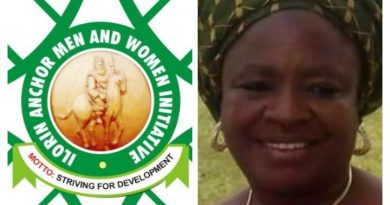ECOWAS Court Orders Nigeria to Amend Cybercrime Law Targeting Journalists, Social Media Users
ECOWAS Court Orders Nigeria to Amend Cybercrime Law Targeting Journalists, Social Media Users
The ECOWAS Court of Justice has ordered the Federal Government of Nigeria (FGN) to amend Section 24 of the Cybercrime (Prohibition, Prevention, etc) Act of 2015.
The court said the modification would meet obligations under the African Charter on Human and Peoples’ Rights (ACHPR) and the International Covenant on Civil and Political Rights (ICCPR).
The case was filed by Socio-Economic Rights and Accountability Project (SERAP), a non-governmental organization.
READ ALSO: Viral Video: Police React to Assault on Esinrogunjo
SERAP had challenged the legality and compatibility of the Section in relation to the guarantees enshrined in Article 9 of the ACHPR and Article 19 of the ICCPR.
The body maintained that it violated the rights to freedom of expression, information and other rights of human rights defenders, activists, bloggers, journalists, broadcasters and social media users.
SERAP said since Act was passed, the Nigerian government and its agents have used the provisions to harass, intimidate, arbitrarily arrest and detain and unfairly prosecute the above listed.
The applicant listed twelve high-profile cases of harassment, intimidation, arrest unlawful detention, prosecution and imprisonment by federal authorities and several states of Nigeria between August 2015 and November 2018.
Responding, the FGN urged the Court to dismiss the suit on the grounds that it was misplaced and unproven and the reliefs sought were not grantable in law.
Its lawyers contended that the application was not only pending before the national court for the same reliefs, but that the interpretation of Section 24 of the Act must be submitted to domestic courts and not the ECOWAS Court.
The FGN said the Act was not only in line with Section 45 of Nigeria’s Constitution, but was subjected to the requisite constitutional and legal processes before its passage.
The Federal Government told the court that SERAP was well aware of the processes but never protest its passage.
Furthermore, the respondent argued that the Act was not enacted to muzzle the freedom of expression but to curtail the activities of criminals carried out on the internet.
Delivering judgement in Ghana, Justice Keikura Bangura said that the contentious Section was not in conformity with Articles 9 of the ACHPR and 19 of the ICCPR to which Nigeria is a signatory.
The court recalled that it had, in a plethora of decided cases, upheld that mere allegation of human rights violation is sufficient to invoke its human rights mandate pursuant to Article 9 (4) of the Supplementary Protocol.
However, the claim of the applicant for compensation was dismissed as both parties were ordered to bear their costs pursuant to Article 66 of the Rules of the Court.
The court decided that proving a claim is imperative and without establishing evidence, “the violations suffered by those listed that resulted in a breach of the respondent’s obligations cannot procure a favourable judgment before this Court”.
“A claimant must support their claim with uncontroverted evidence which is of persuasive value to enable it to discharge its burden of proof”, Justice Bangura said.
Justices Gberi-Be Ouattara and Dupe Atoki were also on the panel that delivered the landmark verdict.




